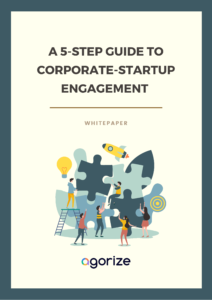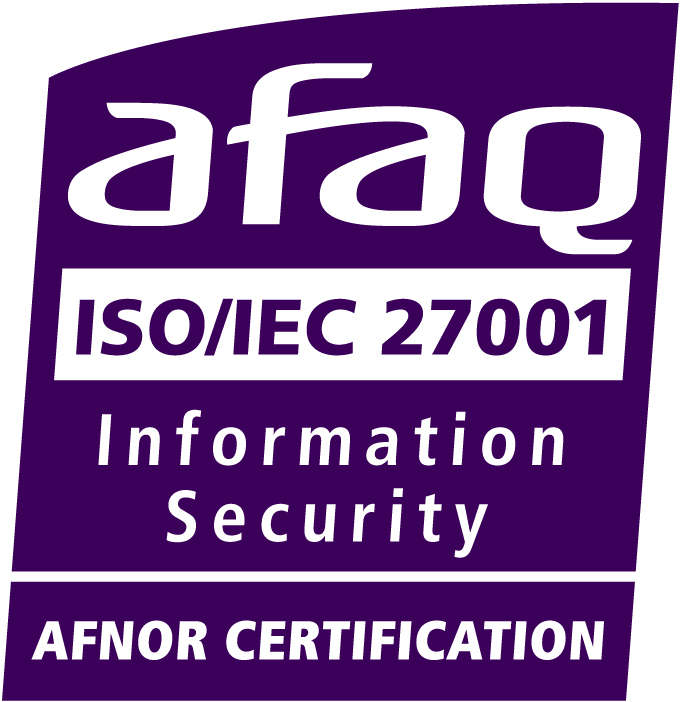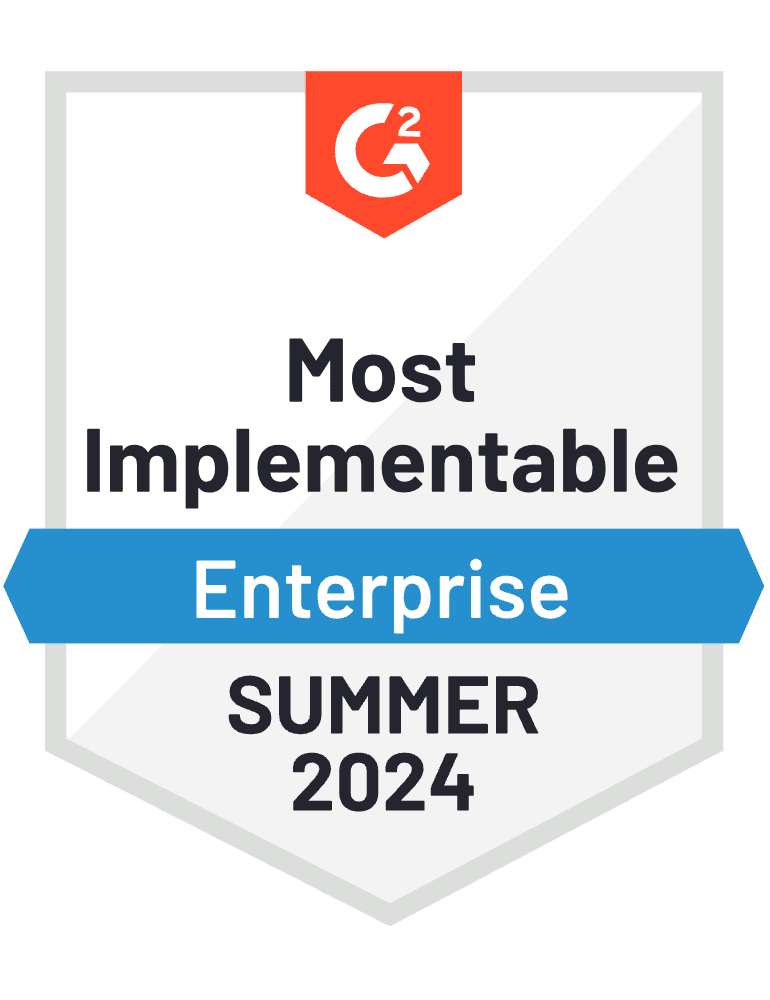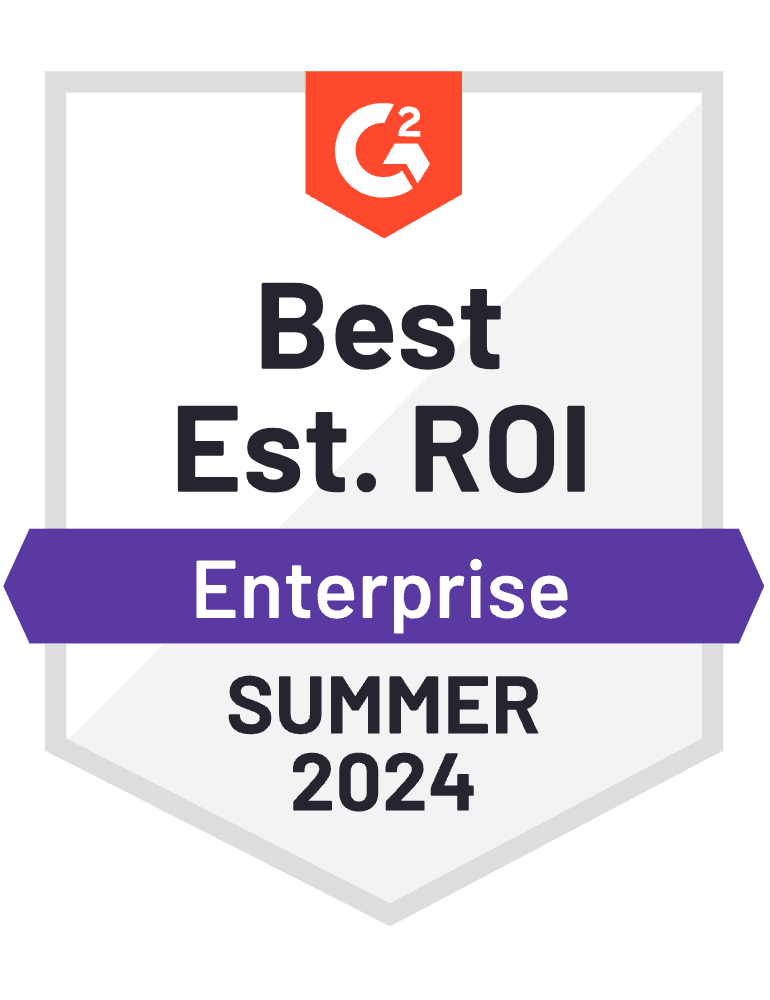Here’s a brutal truth about corporate-startup engagement:
A study conducted by 500 Startups and INSEAD has shown that 68% of the top 100 Forbes Global 500 companies are constantly engaging with startups.
Corporate-startup engagement (CSE), in one form or another, is a hot topic.
However, with terms like accelerator, incubator, open innovation, hackathons and corporate venturing frequently mentioned, but rarely defined, it can be confusing for individuals who are assigned to the role of innovation management.
Thus, to successfully scout the right startups for innovation initiatives, first you’ll need to understand the different types of ways your organization can engage startups.
In this article, we’ll share the five crucial steps to successful CSE extracted from our whitepaper: A 5-step guide to corporate-startup engagement.
Whether you are an executive, a strategy leader or a corporate innovator, you’ll learn actionable strategies that will help facilitate the engagement process with startups, and ultimately help drive more value for your organization.
Step 1: Understand the different types of corporate-startup engagement models
Many companies have no trouble attracting hundreds of startups willing to collaborate with them, but often struggle with choosing the best engagement model to maximise the ROI of their initiatives.
Before jumping into the details of how to choose the most suitable type of corporate-startup engagement (CSE) initiative, let’s take a look at what common types of CSE models are available in the startup ecosystem:
- Sponsorship
- Reverse Pitching
- Mentorship
- Third-Party Accelerator Program/ Incubator
- Corporate Accelerator Program / Incubator
- Corporate Venture Capital
- Open innovation challenge
- Partnership / Proof of Concept
Step 2: Define your objectives
There are numerous exciting engagement models but the challenge is to find the right model for your organization. Before selecting an engagement model, you’ll have to define your objectives for collaborating with startups.
Here are the four key company objectives that drive corporations to engage startups:
- Change Management/Digital Transformation: How do we make our organization more innovative, agile and willing to take risks?
- New Business Opportunities: How can we solve key business problems more quickly and cost-effectively?
- Branding and Marketing: How can we position ourselves as an innovation-driven company?
- Trends Watching: How can we create awareness of new market trends and emerging technologies?
The clearer the objectives of your challenge, the more successful your initiatives will be.
See corporate-startup engagement framework in relation to company key objectives on our whitepaper.
Step 3: Allocate the right resources
Once you’ve decided what objectives you want to achieve, it’s important to understand the different types of resources required to bring a program to life.
Here are the four main types of resource commitment for corporate-startup engagement:
- Cost: the budget for a venue, programs, manpower, prizes, etc.
- Time: the amount of time it takes to organize and plan the program
- Effort/Manpower: from C-level decision makers to employees who are a part of the engagement efforts, mentoring, judging process, event logistics, set up, facilitation, etc.
- ROI: the chances of achieving the objectives you set out
Notably, a long-term commitment is necessary in most cases to achieve a respective return on investments.
See details of our resources commitment graph of different corporate-startup engagement models in our whitepaper.
Step 4: Learn about the details of each engagement model
1. Sponsorship
Corporation sponsors a specific event to engage with the startup ecosystem. Examples:
2. Reverse Pitching
Corporation hosts events to pitch their problem statements, business and operations challenges, ways they’d like to see these be addressed and enable the startup to propose solutions.
3. Mentorship
Corporation provides resources in the form of mentorship programs, thus creating sustainable relationships with startups.
- Tory Burch Foundation Mentorship Program
- UW HCDE & Microsoft Mentor Program
- Enterprise Singapore Scale-up SG
4. Third-Party Supporting Platform/Accelerator Program/Incubator
A startup accelerator is an organization created by experienced entrepreneurs to help early-stage companies develop their products, hone their business models, and connect with investors.
5. Corporate Accelerator Program/Incubator
An incubator or accelerator that is run by a corporation. It aims at developing potentially profitable ideas and offers supportive environments for entrepreneurs, startups, and scale-ups, whether from inside or outside of the company.
6. Corporate Venture
Corporate Venturing is the practice of investing corporate funds into external startups. The goal is to gain strategic competitive advantage and potential financial returns.
7. Open Innovation Challenge
A competition that encourages startups to put forward their most relevant and innovative solutions to solve a corporation’s problem. It can be open to a wide audience of internal and external stakeholders.
7. Partnership/ POC
These partnerships between corporations and startups take a range of forms, including investment, incubation, and contracts.
Step 5: Choose the right engagement model
To find the most suitable corporate-startup engagement (CSE) model for your organization, it is necessary to understand the options of different engagement models, define your innovation objectives and resources available, and weigh the pros and cons of each model.
Even with many options available, one thing is sure – CSE is happening more and more each day, and the results are looking more promising than the older models of both innovation and entrepreneurship as a solo sport.
Corporations will need to find their best route to match, add value, and integrate if they wish to capture opportunities.
What is Agorize?
Agorize is the most comprehensive innovation management platform, supported by a team of experts and community of innovators. For over a decade, we’ve been providing technology powered by a community of 5 million innovators to foster change and accelerate innovation. Our clients and partners worldwide crowdsource, evaluate and develop solutions from startups, employees, developers and students using Agorize.
We’ve helped over 300 global enterprise companies in Europe, North America, and Asia Pacific, including Enterprise Singapore, Huawei, Microsoft, LVMH, PepsiCo, Bayer, Schneider Electric, Hitachi, L’Oréal and many more by running their innovation programs.
What is an innovation challenge?
An innovation challenge, or innovation competition, is a competition organized by a company to bring forward innovative solutions. The organizer defines clear objectives and problem statements, after which innovators are invited to submit their ideas and solutions. Proposals can come from startups, employees, students or other talent that is relevant to the topic at hand. Through a process of crowdsourcing and assessing ideas, mentoring participants and developing solutions, the organization will identify the winning proposals that will be implemented. More than 300 enterprise companies have organized innovation challenges with Agorize.
Their results speak for themselves. They’ve reduced go-to-market time with internal teams, fast-tracked the development of niche solutions with the products and services of startups, created long-term strategic partnerships and brainstormed future-proof ideas with students from top universities. Overall, it accelerated their own transformation and made themselves more future-proof.
What is a startup challenge?
A startup challenge, or startup competition, is a competition organized by a company to identify innovative solutions from startups they otherwise wouldn’t be able to reach. The organizer defines clear objectives and problem statements, after which startups are invited to submit their ideas and solutions. Proposals can come from startups operating in niche industries and with international backgrounds. Through a process of crowdsourcing and assessing ideas, mentoring startups and developing solutions, the organization will identify the winning proposals that will be implemented.
More than 300 enterprise companies have organized challenges with Agorize. Their results speak for themselves. They’ve reduced go-to-market time, fast-tracked the development of niche solutions, created long-term strategic partnerships and brainstormed future-proof ideas. Overall, it accelerated their own transformation and made themselves more future-proof.











